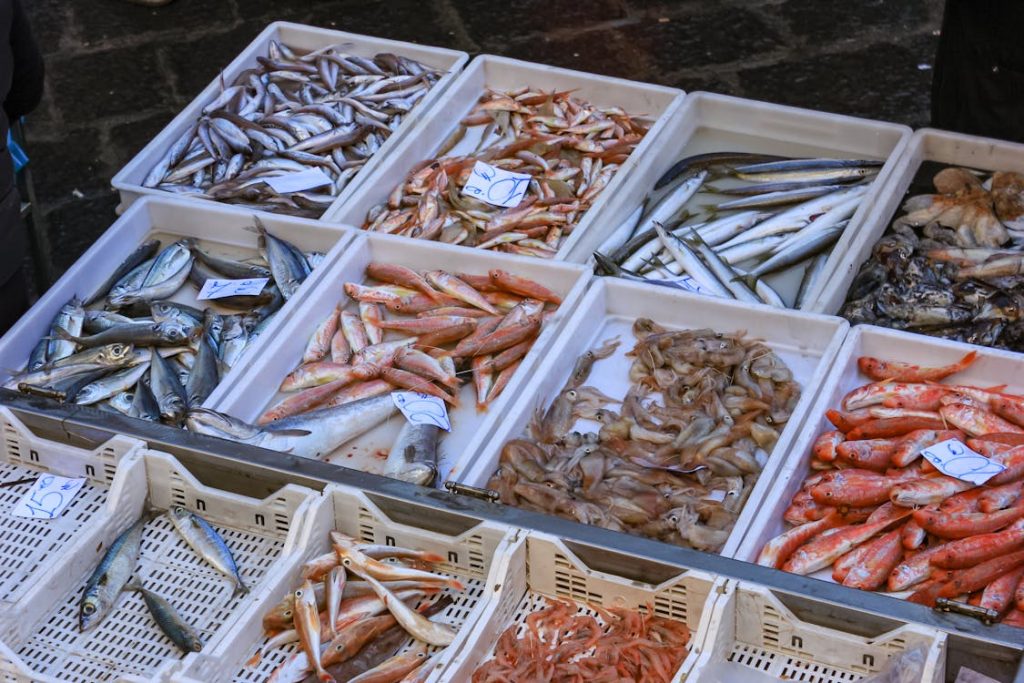What happens when the backbone of a community—its fishing industry—starts to buckle under environmental pressures?
In coastal communities like St. John’s and Petty Harbour in Newfoundland, and Lunenburg and Yarmouth in Nova Scotia, fishing is more than just a job; it’s a way of life, deeply embedded in the culture and economy. Yet, overfishing, climate change, and shifting marine ecosystems are threatening to undermine this tradition. As fish populations dwindle and waters warm, the future of local fishers hangs in the balance. But with challenges come opportunities—opportunities to innovate, adapt, and find new ways to sustain a vital industry.

Adapting to a Changing Ocean:
The changing conditions of the ocean are presenting unprecedented challenges for fishers in Atlantic Canada. As traditional fishing grounds around places like Twillingate and the Bonavista Peninsula become less predictable and species distributions shift, local fishers must find new ways to sustain their livelihoods. These challenges require more than just resilience—they demand innovation and strategic adaptation.
SinewsLink’s platform supports fishers in communities like St. John’s, Petty Harbour, and Lunenburg by connecting them with local interns and skilled workers who can bring fresh perspectives and additional hands to the deck. Interns from local maritime programs, for example, can assist fishers with implementing new technologies, analyzing catch data, and optimizing operational processes. This not only helps fishers adapt to changing ocean conditions but also provides valuable training and experience for the next generation of marine professionals. Furthermore, SinewsLink’s local workforce integration tools enable fishers to hire skilled local workers at reduced costs, ensuring that they have the necessary manpower to handle the increased complexities of modern fishing operations. By tapping into this resource, fishers can better manage their operations, adapt to environmental shifts, and ensure the long-term sustainability of their businesses.
With SinewsLink’s support, these fishers can adapt to the changing ocean by leveraging local talent, ensuring their businesses remain viable and competitive even in the face of uncertainty.
Innovation in Market Access:
One of the biggest challenges for small-scale fishers in places like Shelburne and Digby is market access. Competing with large commercial operations, they often struggle to get fair prices for their catch. Traditional distribution channels can be complex and costly, cutting into already thin margins.
SinewsLink’s platform offers a way to bypass these barriers. By connecting fishers directly with consumers through online marketplaces and community-supported fisheries (CSFs), SL enables fishers to reach new markets and sell their catch at fair prices. This direct-to-consumer approach not only supports local economies but also builds stronger connections between fishers and the communities they serve. Consumers benefit from fresh, sustainably caught seafood, while fishers gain a more reliable income stream.
Empowering Small-Scale Operations:
Small-scale fishers in Atlantic Canada, particularly in communities like Yarmouth and Lunenburg, often struggle to compete with larger operations. Beyond the challenges of fishing itself, they face difficulties in maximizing the value of their catch due to limited access to processing facilities and markets for value-added products. However, creating and selling value-added products—such as smoked fish, canned seafood, or specialty seafood delicacies—can significantly enhance their profitability and market presence.
SinewsLink empowers these small-scale fishers by offering tools and platforms that facilitate the open sale of value-added products made from their catch. Through SinewsLink’s e-commerce marketplace, fishers can easily sell products directly to consumers, restaurants, and specialty stores, expanding their reach beyond local markets. This service not only increases their revenue but also allows them to diversify their offerings, reducing dependency on raw fish sales alone.
Additionally, SinewsLink provides resources and guidance on product development, helping fishers create high-quality, marketable products that appeal to today’s consumers. From packaging design to branding strategies, SinewsLink supports fishers in transforming their catch into premium products that command higher prices. By enabling small-scale fishers to enter the value-added seafood market, SinewsLink helps them increase their income, build stronger customer relationships, and ensure the sustainability of their operations. This approach empowers small-scale operations to thrive in an industry where innovation and diversification are key to long-term success.
By leveraging SinewsLink’s tools, small-scale fishers can diversify their offerings, increase profitability, and secure a sustainable future. This not only strengthens their economic resilience but also preserves the rich maritime traditions of Atlantic Canada.
Building Resilience Through Community Support:
In the face of these challenges, the strength of the community has never been more important. Coastal communities in Atlantic Canada have a long history of supporting one another, and this spirit of collaboration is essential for the future of the fishing industry.
SinewsLink’s Community Engagement Tools are designed to foster this resilience. By facilitating local seafood initiatives, organizing community events, and promoting educational programs, SinewsLink helps to build stronger connections between fishers and the communities they serve. Whether it’s through a local seafood festival in St. John’s or a school program in Shelburne that teaches children about sustainable fishing, these initiatives ensure that the community remains invested in the success of local fishers.
Conclusion: A Mari Usque Ad Mare
How can you contribute to the future of Atlantic Canada’s fisheries?
The future of Atlantic Canada’s fishing industry may be uncertain, but with innovation, community support, and a commitment to sustainability, there is hope. By leveraging the tools and resources offered by SL, fishers in these communities can navigate the challenges ahead and continue to be a vital part of their coastal heritage. Now is the time to act—whether by supporting local fishers, advocating for sustainable practices, or simply staying informed, we all have a role to play in turning the tide.